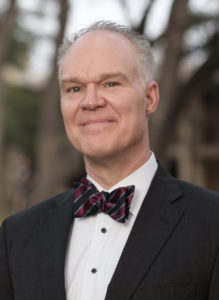Years ago, I went to my mentor for help with anxiety about an upcoming presentation. I’d had a conversation about the spiritual power of money with an acquaintance, a well-connected businessman, and he’d invited me to give a talk on the topic to his colleagues at work as part of their lunchtime speaker series. As the day drew nearer, I descended into dread, imagining all the ways I might make a fool of myself.
My mentor asked: “Why do you want to help these businesspeople?”
I didn’t understand the question. “They’re important, and I need to look credible.”
“I see,” he said. “So, you intend to impress them.”
“Of course,” I said.
“Then you’re going to be anxious.”
Stage fright, it turns out, is mostly a spiritual condition. When we intend to impress someone (or satisfy or survive them) we make an object of that person; that is, we perform to get what we want from them — applause or praise or a job or a date or some signal that we’ve pleased or appeased them, that we’re acceptable. With this narrow goal comes the risk of failure and the anxiety that blocks real connection.
Somewhat mysteriously, a speaker’s intention actually changes his audience. People sense when someone wants to impress them, and they usually play along: If our speaker expects a review, we become critics. “We teach people how to treat us,” says Wayne Dyer. In this sense, stage fright is a self-sustaining economy. A speaker who wants to impress teaches the audience to be the judges she fears.
My mentor asked again, “Why do you want to help these businesspeople?”
“I don’t know,” I said. Because I didn’t.
“What do they need?” he asked.
“They’re very accomplished, powerful people.”
“They certainly don’t need you to impress them,” he said flatly.
“I don’t think of them as needing anything.”
“But what if they do?” he said. “What if that’s why they invited you? Are you willing to help them?”
The question sounded a bit like something Jesus might ask. “Do you want to get well?” “What are you looking for?” “What would you have me do for you?” Questions about our intentions, our desires — questions that come before healing.
The willingness to help almost always crowds out the drive to impress. In that respect, generosity is the opposite of anxiety. My guide was offering me a more powerful intention, one in which I joined my audience or even helped them connect with each other. Rather than trying to get something, he was inviting me to give.
He was also inviting me to trust — to trust strangers, how they might respond, and what might come of a genuine connection that I didn’t control. I wasn’t ready for that. So I filed his advice, and a smaller, greedier part of me set out to conquer my nerves so I could successfully deliver.
The day of the event, I was pumped and confident. My points were polished. When the talk ended, the executives applauded politely. I had apparently met their expectations. On the way out, I saw disappointment on the face of the man who’d invited me.
“That was good,” he said.
“What was missing?” I asked sheepishly.
“I wish it had been more like when we talked,” he said. “I wish they could experience that.”
Later, I told my mentor: “I decided to impress them.”
“So you performed.”
“It wasn’t effective,” I admitted.
“It wasn’t kind,” he said.
These days, I help others work with stage fright. Most of them have tried the technical solutions — beta blockers and deep breathing and affirmations. We work on the spiritual angle.
A Wall Street executive called for help with a tough presentation.
“What makes it tough?” I asked.
“I’ve got to talk about something that’s not important with people I don’t like.”
I remembered my mentor’s words: “To talk about things that don’t matter is to practice despair.”
“I can help,” I heard myself say, “if you can manage to care.”
One financial expert told me public speaking made him feel like a fraud. I asked what his audience was afraid of and why they needed what he knew. Over the next few weeks, we practiced techniques for organizing and sharpening his points. Throughout each day he’d remind himself: “I am willing to help.” Gradually his anxiety dissolved. I called him a few months later to see how things were going.
“I miss stage fright,” he said. “I had a great excuse. Now, I just have responsibility.”
What if stage fright is simply excitement about the difference we might make — a difference that’s rarely about us and never about our egos? The real difference is what happens when we risk seeing each another, and we risk seeing when we’re willing to share.
What difference could you make if you weren’t afraid?
Are you willing to help?


